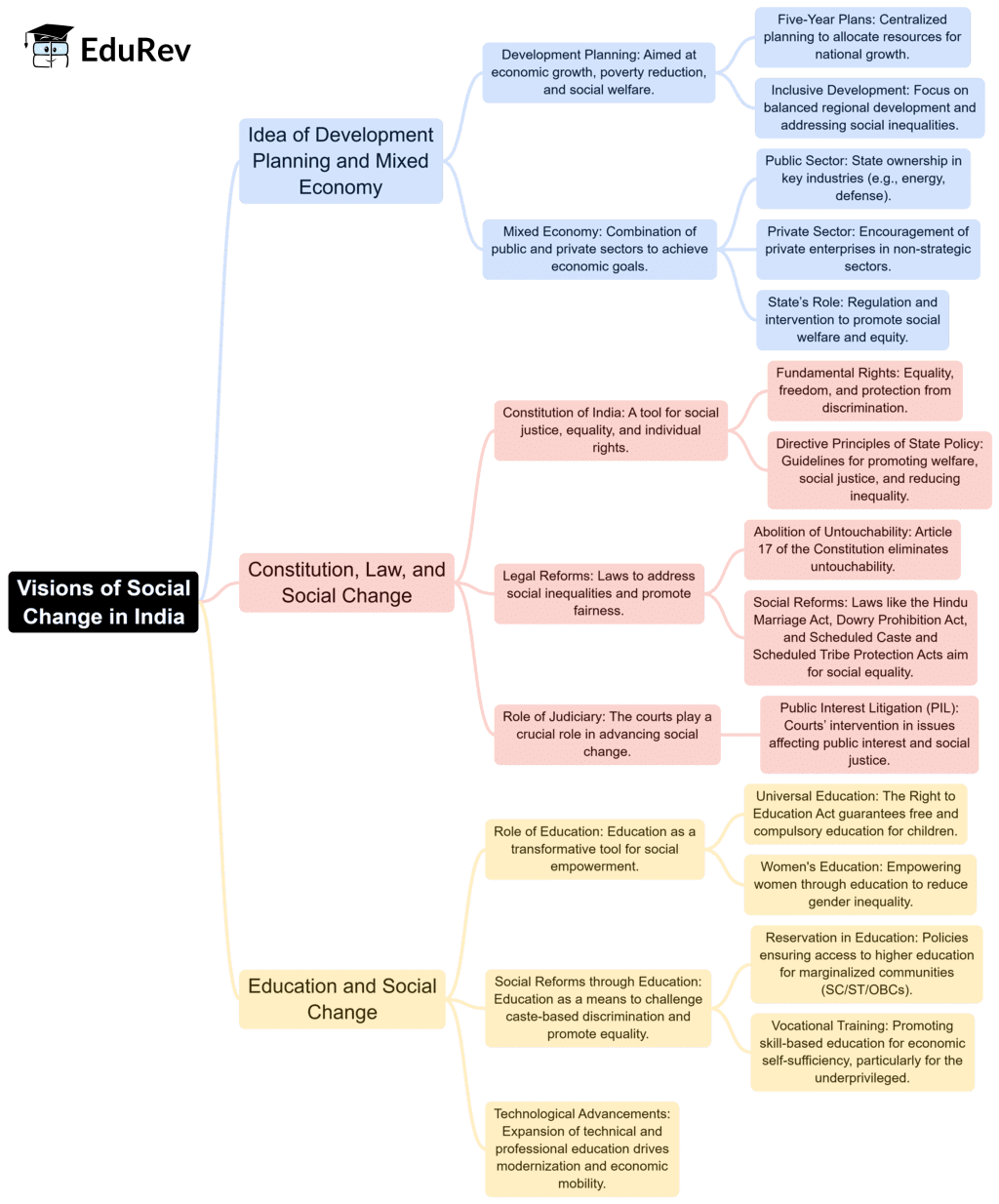UPSC Exam > UPSC Notes > Sociology Optional for UPSC (Notes) > Mind Map: Visions of Social Changes in India
Mind Map: Visions of Social Changes in India | Sociology Optional for UPSC (Notes) PDF Download

The document Mind Map: Visions of Social Changes in India | Sociology Optional for UPSC (Notes) is a part of the UPSC Course Sociology Optional for UPSC (Notes).
All you need of UPSC at this link: UPSC
|
120 videos|427 docs
|
FAQs on Mind Map: Visions of Social Changes in India - Sociology Optional for UPSC (Notes)
| 1. What are the main social changes occurring in India today? |  |
Ans. India is experiencing significant social changes, including shifts in gender roles, increased urbanization, the rise of digital technology, and greater awareness of social issues like caste discrimination and environmental concerns. These changes are influenced by globalization, economic growth, and the youth's aspirations for a more inclusive society.
| 2. How does modernization impact traditional Indian society? |  |
Ans. Modernization in India has led to a transformation of traditional values and practices. While it promotes economic development and technological advancement, it also challenges established norms, particularly regarding family structures, marriage practices, and gender equality. This duality can create tension between preserving culture and embracing change.
| 3. What role does education play in social change in India? |  |
Ans. Education is a crucial driver of social change in India. It empowers individuals, particularly women, by providing opportunities for better employment and enhancing awareness of rights and responsibilities. Improved literacy rates and access to education contribute to the reduction of poverty and inequality, fostering a more informed and active citizenry.
| 4. How do social movements contribute to change in Indian society? |  |
Ans. Social movements in India, such as those advocating for women's rights, environmental justice, and anti-caste discrimination, play a vital role in raising awareness and prompting legislative changes. These movements mobilize communities, influence public opinion, and pressure the government to address social injustices, leading to significant societal transformations.
| 5. What challenges does India face in achieving social equity? |  |
Ans. India faces several challenges in achieving social equity, including entrenched caste systems, gender discrimination, economic disparity, and regional inequalities. Corruption, inadequate access to quality education and healthcare, and societal norms also hinder progress. Addressing these issues requires concerted efforts from the government, civil society, and the public.
Related Searches















